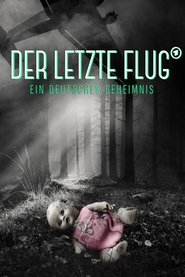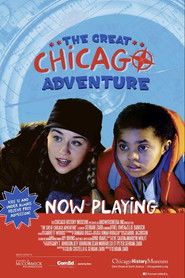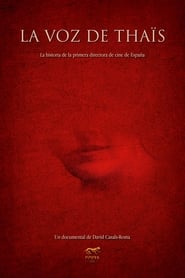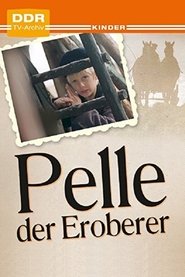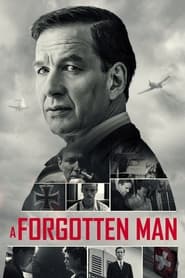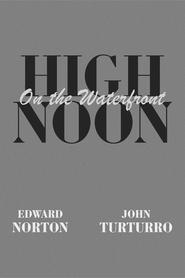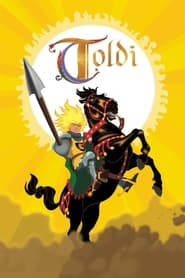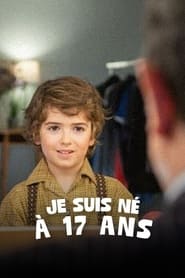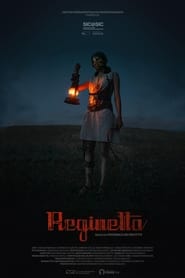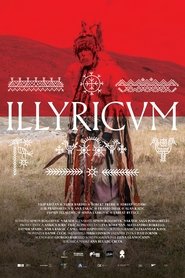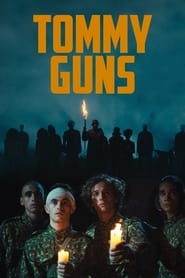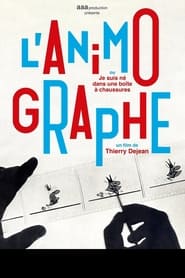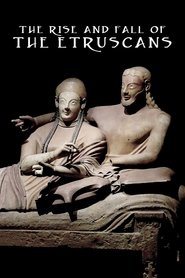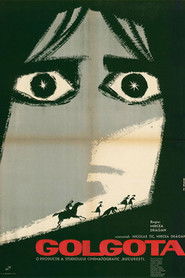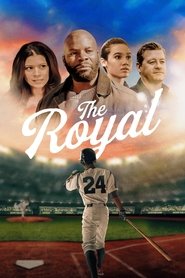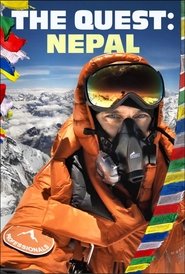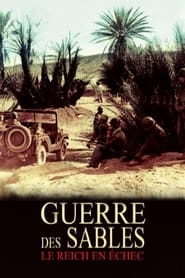Top Rated History Movies - Page 298
-
Der letzte Flug - Ein deutsches Geheimnis
2022
star 8.3A mysterious story from the madness of the Second World War: when the Red Army shot down a civilian plane over Brandenburg villages on April 20, 1945, the incident not only destroyed lives, but also left deep traces and numerous questions at the scene of the accident: who was on board the plane and who was even allowed to leave Berlin, which had been bombed by the Allies? -
The Great Chicago Adventure
2015
star 7For those who heart history and the great city of Chicago, this film will take you through time with a small child and his nervous babysitter. Feel the intensity of the Great Chicago Fire and splendor of the World’s Columbian Exposition. Explore the sights of bustling Maxwell Street in the 1950s and peer down from an I-beam of the Sears Tower in the 1970s. Relive Chicago sports victories and cheer on President Obama during his Grant Park victory speech. -
The Voice of Thaïs
2022
The Voice of Thaïs
2022
star 6.7Clara Mingueza, an actress from Barcelona, sets out to move the mortal remains of Elena Jordi (1882-1945), vaudeville star, actress and the first woman director of Spanish cinema, to her hometown, while trying to find a copy of Thaïs, the only film she directed. -
Pelle the Conqueror
1986
Pelle the Conqueror
1986
star 3From Martin Anderson Nexo's novel comes this loved story of a Swedish boy and his elderly father trying to make a better life for themselves in Denmark. A bleak future quickly becomes apparent when the two find employment on a farm full of misery. -
A Forgotten Man
2023
A Forgotten Man
2023
star 6Spring 1945, Heinrich Zwygart, Swiss ambassador to Germany flees bombed-out Berlin after eight years of service in the capital of the Reich. This is the end of a terrible mandate, during which he had to make fatal compromises to preserve the neutrality and security of his country. He went through the war, but will he survive the peace? -
The Egypt Code Breakers
2022
star 6.7By decoding ancient hieroglyphic texts, Jean-François Champollion gave voice to an enigmatic civilization, but behind his legendary feat is a mysterious brother who made it possible. The recent discovery of correspondence between Jean-François Champollion and his brother Jacques-Joseph now allows us to fully understand how a young, self-taught genius was able to make one of the most important discoveries of the 19th century. Without the ingenuity and unfailing support of his older brother, Jean-François would never have succeeded in solving this enigma, which had international repercussions. With animated sequences of their private correspondence, and with the help of archives and expert analysis, this film revisits this unique scientific, human and intellectual adventure to celebrate the bicentenary of the decoding of hieroglyphics. -
High Noon on the Waterfront
2022
star 6.7An inventive remembrance of the impact of the Hollywood blacklist on two American classics, rendered as a visually mesmerizing dialogue between Carl Foreman and Elia Kazan. -
Toldi
2022
Toldi
2022
star 7.3Animated version of a famous Hungarian epic tale by János Arany. Through the story of Miklós Toldi, we witness a brutal young man learning to master his strength and inner struggles to become King Louis I’s most famous knight. Toldi clashes with his scheming elder brother and travels from the marshlands to 14th-century Pest, fighting every challenge to prove his honor. His journey of self-discovery and courage unfolds against the rich backdrop of the chivalric world and the Hungarian plains. -
Je suis né à 17 ans
2023
Je suis né à 17 ans
2023
star 8.7Thierry is a former battered child, who has managed to build himself up despite the violence he has suffered. But the childhood traumas are still present, generating anguish and a perpetual lack of self-confidence. The announcement of the imminent death of the guilty father of the brutalities, and with whom Thierry broke all relation, sounds the hour of the accounts. The moment has come for him to put his memory and his feelings in order. -
Reginetta
2022
Reginetta
2022
star 7.3Ciociaria, early ‘50s. A young farmhand is recruited to participate in Miss Italia selections, but her body measurements are not quite right for the contest. To undergo a terrible process of physical transformation seems to be the only way to be elected Reginetta. -
Illyricvm
2022
Illyricvm
2022
star 6.3The year is 37 BC. A young Liburnian Volsus is taken by a Roman unit to help in what at first seems a simple task of collecting taxes, but the encounters with local Illyrian tribes soon lead to unexpected turns of events, as they show more resilience to subjugation than meets the eye. We see their archaic, emotional world of quaint and brutal laws and traditions through the eyes of this youngster, regarded by the Romans as a primitive barbarian, and gradually come to understand that their world is not all that different from our own. -
The Queen of Kung Fu 3
2022
star 6.7The gorgeous big boss of The Bund, Ying, decides to end her career and live a peaceful life. But the various sects in the jungle are competing for the title of the best martial artist in the world. While Ying left for her hometown to celebrate her birthday, her master got murdered. In order to avenge her master's death, she returns to Shanghai with her younger sister and kills the gangsters, but she is falsely accused of killing her master and destroying her ancestors. How can she avenge the death of her master and punish the evil and promote good? -
Tommy Guns
2023
Tommy Guns
2023
star 2In 1974, after years of civil war, the Portuguese and their descendants fled the colony of Angola where groups working for independence gradually claim their territory back. A tribal girl discovers love and death when her path crosses that of a young Portuguese soldier. Meanwhile, another group of Portuguese soldiers is barracked inside an infinite wall from which they will have to escape once the past comes out of the grave to claim its long-awaited justice. -
The Animograph, or I Was Born in a Shoebox
2022
star 8The amazing story of the animograph, a machine created in France in the sixties by the cartoonist and self-taught inventor Jean Dejoux (1922-2015), whose creation was intended to revolutionize the animation industry. -
The Rise and Fall of the Etruscans
2022
star 9.3For eight centuries, between the 9th and 1st century BC, the Etruscans, inhabitants of the Italian peninsula, were one of the most powerful peoples of the Mediterranean basin, and when they disappeared they left behind impressive necropolises, vestiges of sanctuaries and even entire cities. How did they attain such power? How far did they extend their dominion and influence? What were the causes of their decline? -
Golgotha
1966
Golgotha
1966
star 7.7Six widows demand compensation for the death of their husbands, who were killed during a worker's strike. The women are arrested and taken to the police quarters, where the authorities try to make them retract their statements, but it turns out they're not so easily intimidated. -
The Royal
2022
The Royal
2022
star 5The promising career of former Kansas City Royal slugger Willie Mays Aikens quickly turned disastrous because of drug addiction. -
June Zero
2023
June Zero
2023
star 7.7Israel, 1961. Nazi war criminal Adolf Eichmann, responsible for organizing the extermination of European Jews, is sentenced to death. -
THE QUEST: Nepal
2022
THE QUEST: Nepal
2022
star 8.3'THE QUEST: Nepal' is an epic journey to deeper understand and climb the most iconic mountain on earth, Everest, and to unveil the fascinating culture, history and nature of Nepal. From experiencing Mt. Everest like never before to witnessing remarkable rarely seen stories from one of the most unique countries in the world, 'THE QUEST: Nepal' is truly a one-of-a-kind cinematic journey like no other, and one which embodies the incredible human spirit of adventure that lives inside us all!
 Netflix
Netflix
 Amazon Prime Video
Amazon Prime Video
 Apple iTunes
Apple iTunes
 Apple TV Plus
Apple TV Plus
 Disney Plus
Disney Plus
 Google Play Movies
Google Play Movies
 Paramount Plus
Paramount Plus
 Hulu
Hulu
 HBO Max
HBO Max
 YouTube
YouTube
 fuboTV
fuboTV
 Peacock
Peacock
 Peacock Premium
Peacock Premium
 Amazon Video
Amazon Video
 The Roku Channel
The Roku Channel
 AMC+
AMC+
 Kocowa
Kocowa
 Hoopla
Hoopla
 The CW
The CW
 Vudu
Vudu
 Starz
Starz
 Showtime
Showtime
 PBS
PBS
 Pantaflix
Pantaflix
 FXNow
FXNow
 Tubi TV
Tubi TV
 Kanopy
Kanopy
 Comedy Central
Comedy Central
 Crunchyroll
Crunchyroll
 Microsoft Store
Microsoft Store
 Redbox
Redbox
 Sun Nxt
Sun Nxt
 ABC
ABC
 DIRECTV
DIRECTV
 Crackle
Crackle
 Fandor
Fandor
 Plex
Plex
